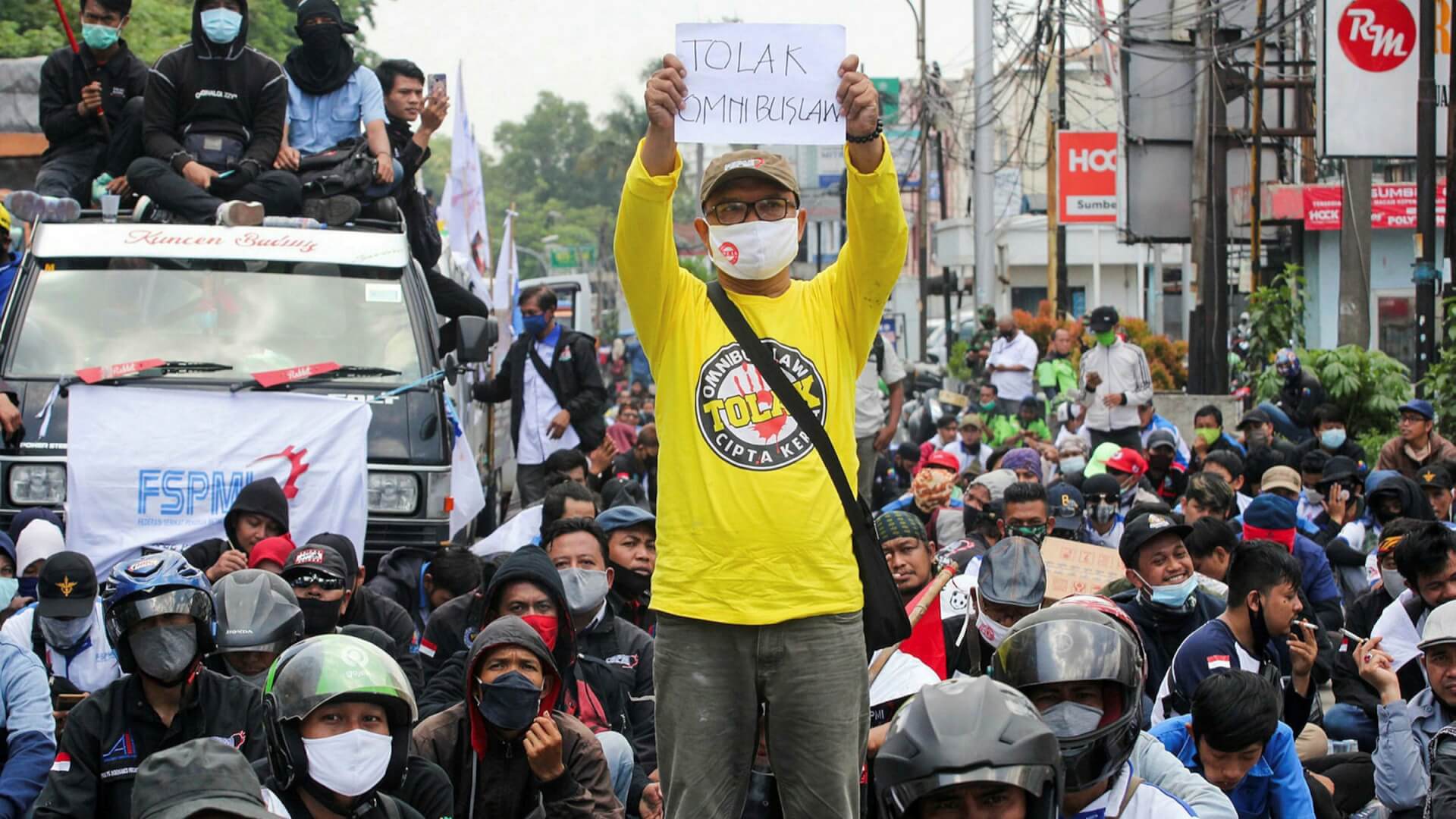Thousands of Indonesians took to the streets across the country on Tuesday to peacefully protest against a new labor law passed by the country’s parliament this week that critics argue will weaken workers’ rights and environmental protections. However, media reports suggest that Indonesian law enforcement authorities arrested around 23 people and detained hundreds in the Javan cities of Serang and Bandung, and used water cannons and tear gas to quash protests after protesters set fires near blocked streets and pelted the police with rocks and petrol bombs.
The clashes erupted on the first day of a three-day national strike against President Joko Widodo’s ‘omnibus’ job creation bill, which was passed into law on Monday. The single piece of legislation amended over 70 existing laws, which the government claims was essential to improve the foreign investment climate and create more jobs in the pandemic-battered economy.
However, the law has come under fire because it allows employers to keep workers on indefinite contracts and cuts severance benefits, and includes reforms such as longer working hours and changes to mandatory paid leave. Several environmental groups have also said that it could pave the way for ecological disasters due to relaxed environmental regulations.
The passing of the bill was welcomed by the Indonesian stock market, with the main stock index up as much as 1.31% and the rupiah reaching as high as 1.28%, its strongest in a month. Deputy Finance Minister Suahasil Nazara stressed that the law was meant to support the business community “to move forward and create many jobs”. Likewise, in a research note, Citibank said that the new rules would be beneficial, since they simplified business licensing and addressed restrictive trade and labor policies. The Indonesian government has also said that misinformation about the details of the legislation had led to heightened fears and concerns and that they needed to be clarified.
However, not all are convinced. Workers have claimed that the law will serve as a “red carpet for investors” and widen the “power of the oligarchy”, inevitably hurting not just labor protections, but also farmers and indigenous communities. The bill was also passed earlier than expected, at a time when Indonesian authorities banned any form of demonstrations in Jakarta due to public health concerns, which has only further raised concerns of a lack of consultation with the primary stakeholders. On Wednesday, the Confederation of Indonesian Workers Unions said in a statement it would continue a planned three-day strike after claiming hundreds of thousands had left their factories on Tuesday.
Thousands Take to the Streets in Indonesia to Protest Against New Jobs Bill
Critics argue that the omnibus legislation will weaken workers’ rights and environmental protections.
October 8, 2020

SOURCE: FINANCIAL TIMES/AFP
